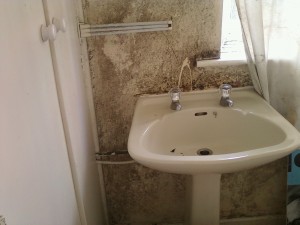Landlords have legal rights and duties. Your legal rights, which may be also known by companies such as Winright Law, derive from general landlord/tenant law as well as from any written or verbal tenancy agreement between you and your tenant.
Duties include:
Keeping the property up to minimum standard regulation
Allowing your tenant the quiet and peaceful enjoyment of the tenancy
Complying with any special terms set down in your tenancy agreement, verbal or written.
Rent Books
You must by law provide your tenant with a rent book or written letting agreement or lease. All payments received must be recorded either in the rent book or by written statement. In addition, the rent book, or letting agreement, must contain other information about the tenancy, specified by the Rent Book Regulations:
Address of the rented dwelling
Name and address of you, the landlord and your agent (if any)
Name of the tenant
Term of the tenancy
Amount of rent, when and how it is to be paid, (e.g. cash, cheque, standing order)
Details of other payments (e.g. telephone, TV)
Amount and purpose of any deposit paid and the conditions under which it will be returned to the tenant.
Statement of information on basic rights and duties of landlords and tenants
You could incur a fine if you do not supply a rent book. Rent Books are available to purchase from stationers and all Threshold centres.
Deposits
You must return promptly any deposit paid by the tenant. The deposit may be retained or deductions made where there are
1) rent arrears
2) costs incurred to repair damage above normal wear and tear
Advertising or reletting costs are not normally valid reasons for withholding a deposit. It is illegal to hold tenant’s goods in lieu of money owed.
If you feel that the deposit does not fully cover rent arrears or the costs of repairing the property, you can make an application to the Private Residential Tenancies Board (PRTB).
Inventory of Contents
Your must record, in the rent book or letting agreement, details of furnishings and appliances provided. It is desirable (though not compulsory) to also record their condition as this can help prevent disputes about damaged or broken items. This only applies to tenancies which commenced after September 1st 1993.
Security of tenure
The Residential Tenancies Act 2004 introduced new security of tenure for tenants. A tenancy that lasts an initial six month period will entitle the tenant to remain in the tenancy for a further three and a half years. The landlord can terminate the tenancy during the three and a galf year period but only on specific grounds. These grounds are listed under the section on the Residential Tenancies Act. Contact Threshold for further information.
Rent Increases
Landlords are prohibited by the Residential Tenancies Act 2004 from charging above the market rent for a tenancy. Landlords may only increase the rent once in a 12 month period unless there has been a substancial change in the nature of the accommodation.
Notice of Termination
As stated above, the Residential Tenancies Act 2004 affords greater security of tenure to tenants. During the three and a half year period the landlord can only terminate the tenancy on specified grounds.
Acceptable grounds include the
tenant not complying with their obligations (e.g. not paying their rent)
landlord intending to sell the dwelling
landlord requiring the dwelling for his own occupation or for a family member
However, please note that if a fixed term tenancy exists it cannot under any circumstances be terminated before the expiry of the term, unless the landlord or the tenant is in serious breach of the agreement. Please contact Threshold if you have any query about these rules.
The landlord must also give the tenant written notice of termination. The period of notice will depend on the duration of the tenancy.
Duration of Tenancy Notice by Landlord
Less than 6 months 28 days
6 or more months but less than 1 year 35 days
1 year or more but less than 2 years 42 days
2 years or more but less than 3 years 56 days
3 years or more but less than 4 years 84 days
4 or more years 112 days
Tenants must supply the landlord with the equivalent period of notice when they wish to leave the tenacy except after 2 years the tenant has to serve 56 days notice of termination and this period does not increase until the end of the tenancy.
Privacy
Tenants are entitled to quiet and peaceful enjoyment of their tenancy. A landlord is only allowed enter with the tenants permission. If you need to carry out repairs or inspect the premises, it should be by prior arrangement with the tenant.
Standards
You must, by law, ensure that the property complies with certain minimum standards (e.g. free from damp, free from mould, in good structural repair, hot and cold water, adequate means of heating and ventilation, appliances in good working order, electrical wiring, gas, pipes in good repair). If the property does not comply with these standards, you could incur a fine or be prosecuted. Contact Threshold or your local authority for further advice.
Registration
Any properties for rent are required by law to be registered with the Private Residential Tenancies Board. There are some exceptions including: holiday lets, where the landlord is a relative of the tenant; where the landlord is resident and there is no more than one other flat on the premises. For further information contact Threshold or the Private Residential Tenancies Board. Landlords who fail to register are liable to prosecution.

